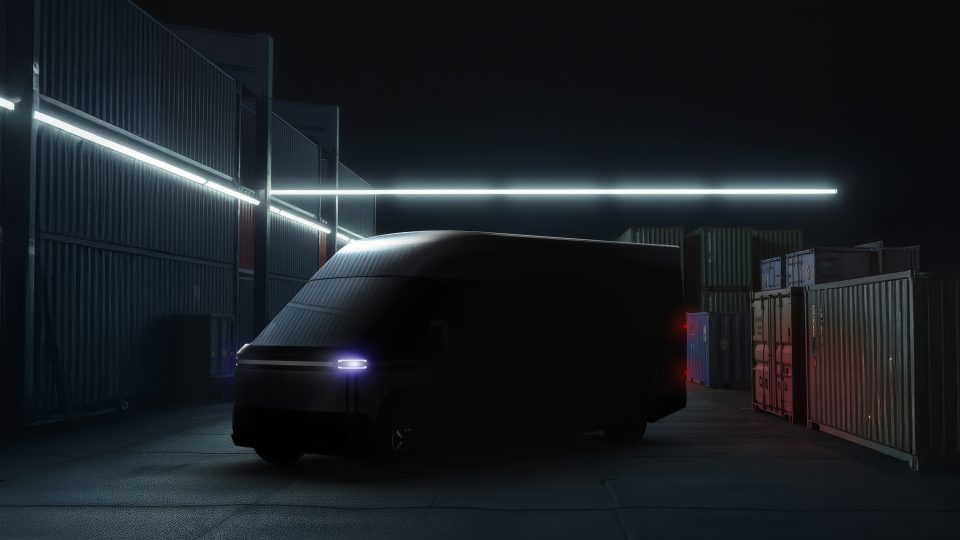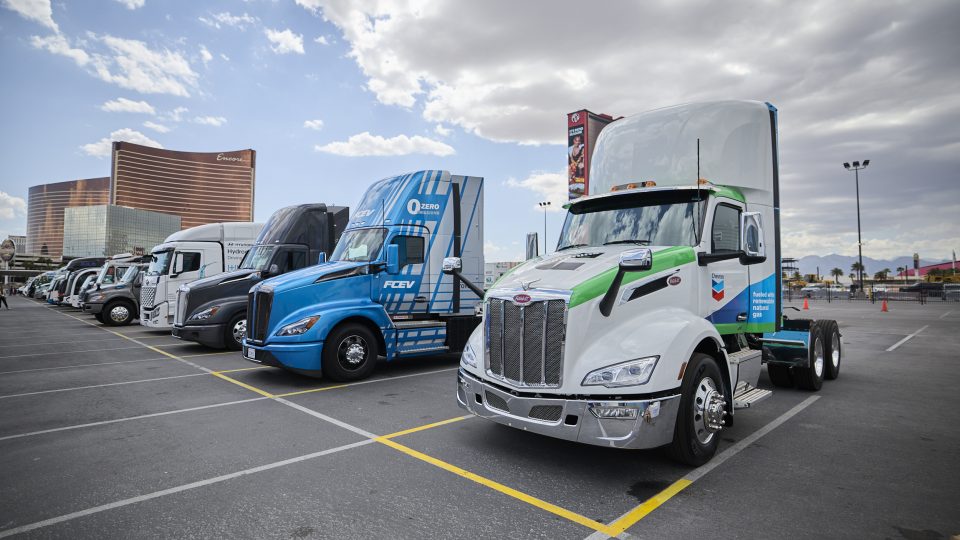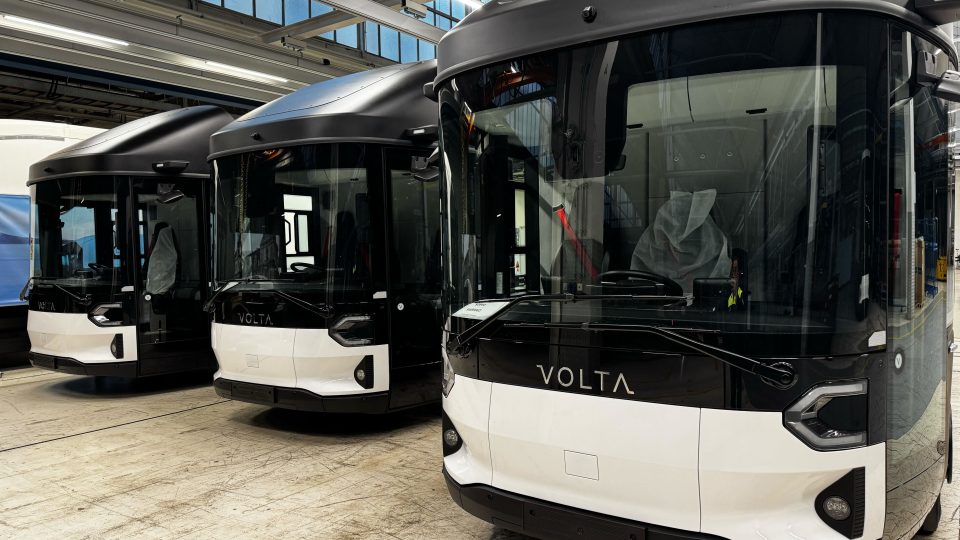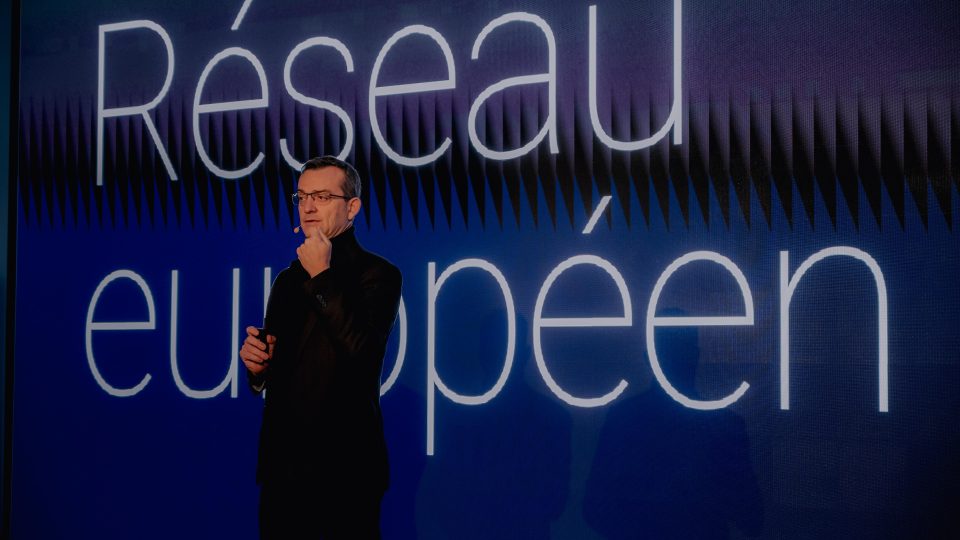Claudio Zanframundo (Thermo King): “Electrification and digitization are the main opportunities of refrigerated transport”
There is a clear demand for greener transportation from end customers, who are demanding products with low or no emissions. At the same time, our customers need to look at their investments and payback. Here, digitization and the expertise of specialists like Thermo King can make a difference because we can provide the solution they are looking for.
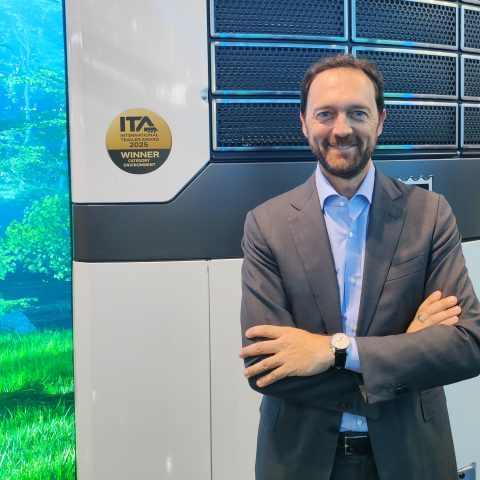
Our chat with Claudio Zanframundo, EMEA President for the Truck, Trailer and Bus division, as well as global manager for marine, rail and air transport at Thermo King, starts with an award received at IAA in Hanover that made not only the Italian manager, but also the entire Thermo King group, truly proud. We refer to the Trailer innovation award in the Sustainability category, assigned to the Advancer-e Spectrum and AxlePower, Thermo King’s electric multi-temperature trailer cooling unit and energy recovery system.
“We see this as recognition for the commitment of Thermo King and the entire Trane Technologies group to reducing CO2 emissions. All this is part of a broader effort in reducing global emissions by a gigaton by 2030, communicated three years ago.”
An important goal, no doubt about it. But how is it pursued, concretely?
By developing a series of electric products, energy recovery solutions, but also improving efficiency and fuel consumption of other products. A substantial portion of the market requires hybrid systems with internal combustion engines, so we continue to innovate across the board. For instance, the AxlePower energy recovery system and the multi-temperature electric Advancer series are among those that are allowing us to stay on this path.
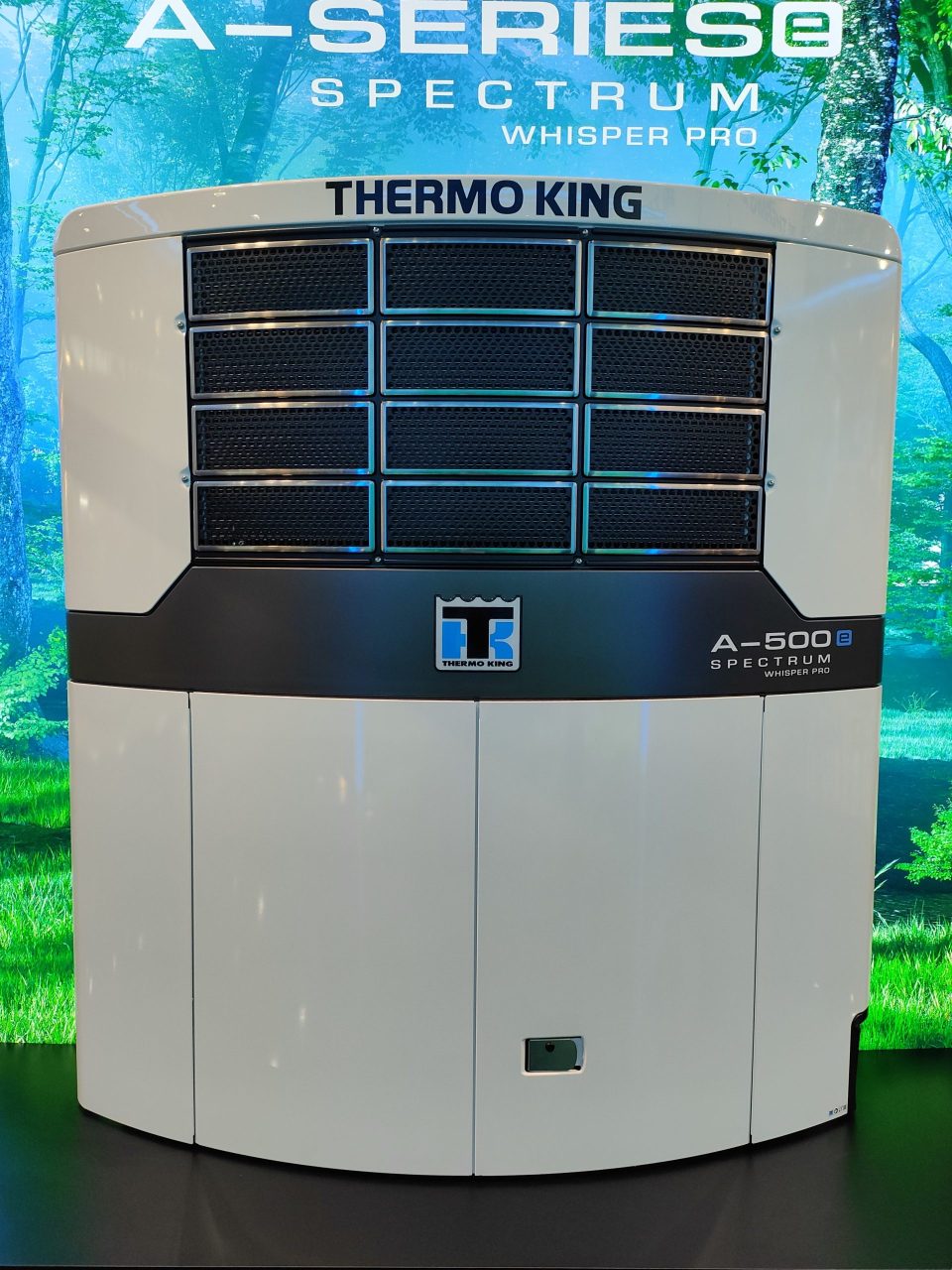
Talking about electrification, how’s Thermo King Europe adjusting its production processes?
There is strong synergy between the Galway plant, which is very focused on electrification, and our center of excellence for trailer hybridization in the German plant in Essen. In Essen we design and manufacture the battery packs and inverter systems. We’re seeing growing interest in innovative solutions such as the AxlePower.
Thermo King: feedbacks from the customers on the most innovative products
What kind of feedback are you getting from customers on complex solutions like this?
With the first customers who have purchased an AxlePower connected to an Advancer hybrid unit, we have seen that electric use is up to 97 percent. This, in our opinion, facilitates the transition to pure electric. It’s more or less like people moving from ICE cars to hybrid cars, up to electric vehicles. Today, trailer operations ranging between 2,500 and 3,000 hours of use per year have a return on investment of about three and a half years. This triggers a virtuous cycle whereby the more the demand grows, the more we can make the costs competitive.
For electric solutions, but also for systems like AxlePower, cost can be a significant barrier to entry. What can a manufacturer like Thermo King do to break down this barrier?
There are two key components. First, we address the psychological resistance from the customer to adopt these types of solutions. Second, we are offering alternative approaches to purchase, such as rental options and leveraging the support of our dealer network to make this transition more accessible. While Rental is not our core business, it forms part of our commitment to working alongside the customer on high-value solutions. These options present a different cost structure and mode of operation compared to traditional solutions they may be accustomed to.
Do your customers have to meet the requirements of their customers when it comes to sustainability?
There is a clear demand for greener transportation from end customers, who are demanding products with low or no emissions. At the same time, our customers need to look at their investments and payback. A solution like our AxlePower offers a smart approach by eliminating the diesel consumption of the refrigerated unit by recovering the energy generated by the vehicle, which is stored in the batteries and used to power the unit – supporting both sustainability and efficiency goals.
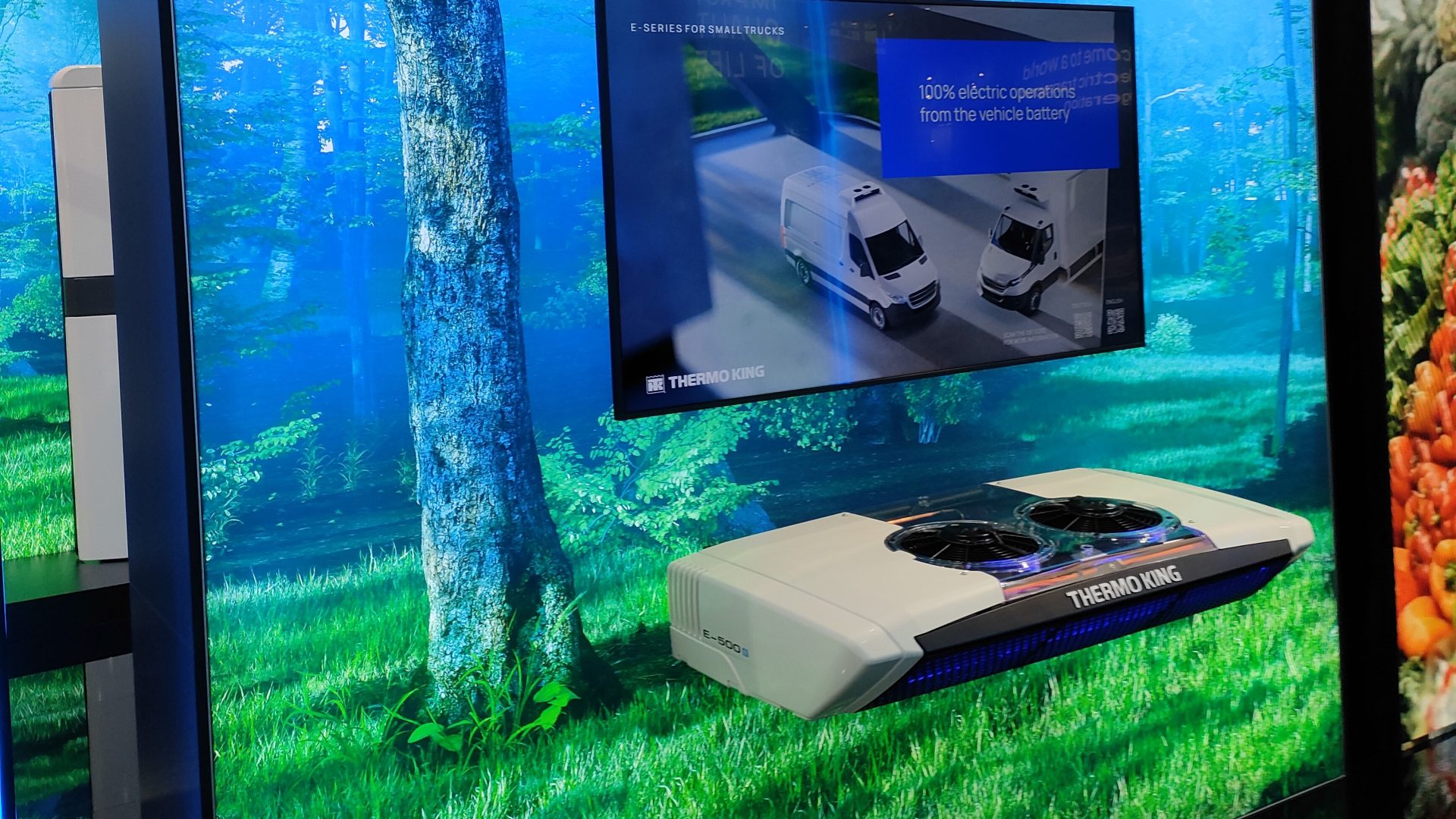
Zanframundo (Thermo King) on the importance of telematics
What is the question most often expressed by your stakeholders?
The question they often ask us is whether AxlePower impacts overall vehicle fuel consumption. This impact is minimal – approximately 0.1 liter per 100 km, practically zero, thanks to its intelligent operating system, which optimizes energy recovery at the most opportune times, like during braking or downhill driving. Everything happens automatically, and our telematics system monitors both the battery levels and the energy recovery. Control can also be done remotely, from a control room. That’s the beauty of digitization, which brings both economic and environmental benefits in this case.
Back to IAA in Hannover, what was the main focus of Thermo King’s participation at the fair?
The highlight was the launch of the E-Series range designed for vans to medium trucks up to 26 tons, thus covering the medium range down. We had done the same with trailers, with the Advancer launched almost three years ago, and now available in both electric and hybrid. For the electric range we are launching now, we focused on components, aerodynamics, and weight reduction. Let’s not forget that reducing the weight of the refrigeration unit by even one kilogram means increasing the payload capacity of a vehicle and ensuring higher margins for the customer.
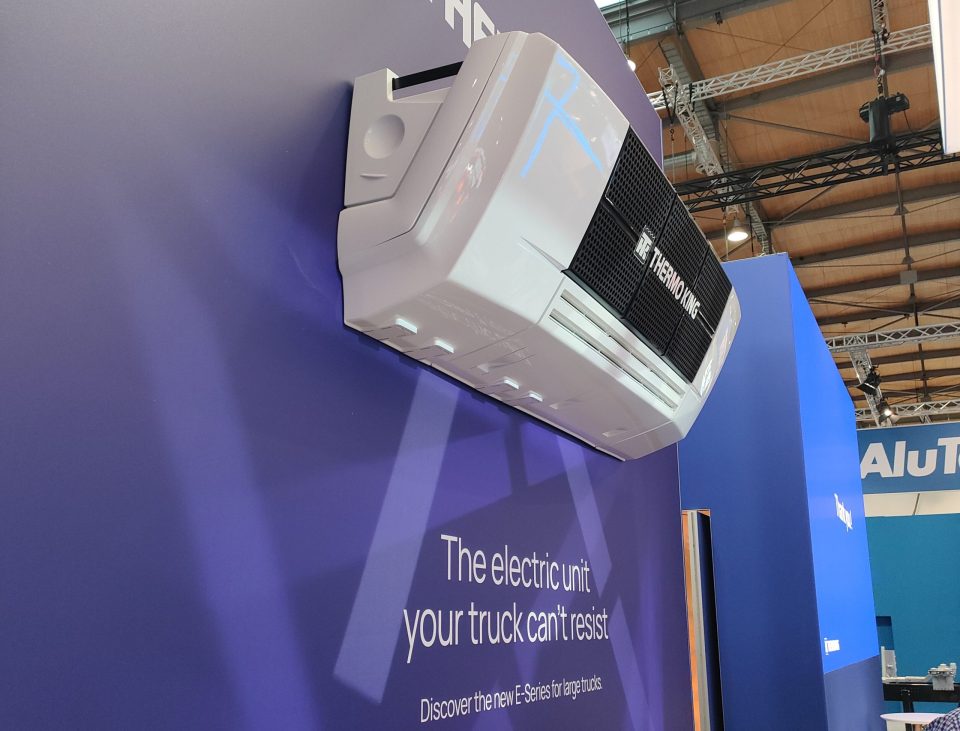
In this scenario, what role does digitization play?
The products I mentioned come equipped with remote tracking capabilities, enabling real-time monitoring of usage temperatures and their fluctuations. Being able to change settings even from an operations center is a very important aspect, as is the ThermoKare 24/7 monitoring service that allows the customer to have complete freedom and peace of mind. In fact, as soon as there is an alarm signal, a door opening, or a temperature movement above or below a certain range, alarms are immediately triggered, thus allowing the operations center to reset setpoints where required, or alert a service center. This is especially important for those transporting high-value goods, like pharmaceuticals or electronic components. Combining electrification and digitalization is the order of the day, not forgetting the aspect of optimizing fuel consumption for those still using hybrid systems.
The current challenging market scenario
Let’s look at the market. How do you see the current situation?
The refrigerated transport sector has historically been less impacted by economic fluctuations than other industries, primarily because essential needs remain constant – people continue to eat, need for medicines endures, the global population is not only growing but also aging. This stability is visible in today’s demand.
However, we are also witnessing a shift in customer needs toward more digitized and efficient transportation. End customers are increasingly insisting on full traceability from start to finish. Here, digitization and the expertise of specialists like Thermo King can make a difference because we can provide the solution they are looking for. In short, from our point of view, refrigerated transportation remains a healthy business, but with a demand that is becoming more complex. It is no longer enough to provide solutions, but it has to be done in an energy-efficient way, with advanced traceability and 24/7 continuous service.




